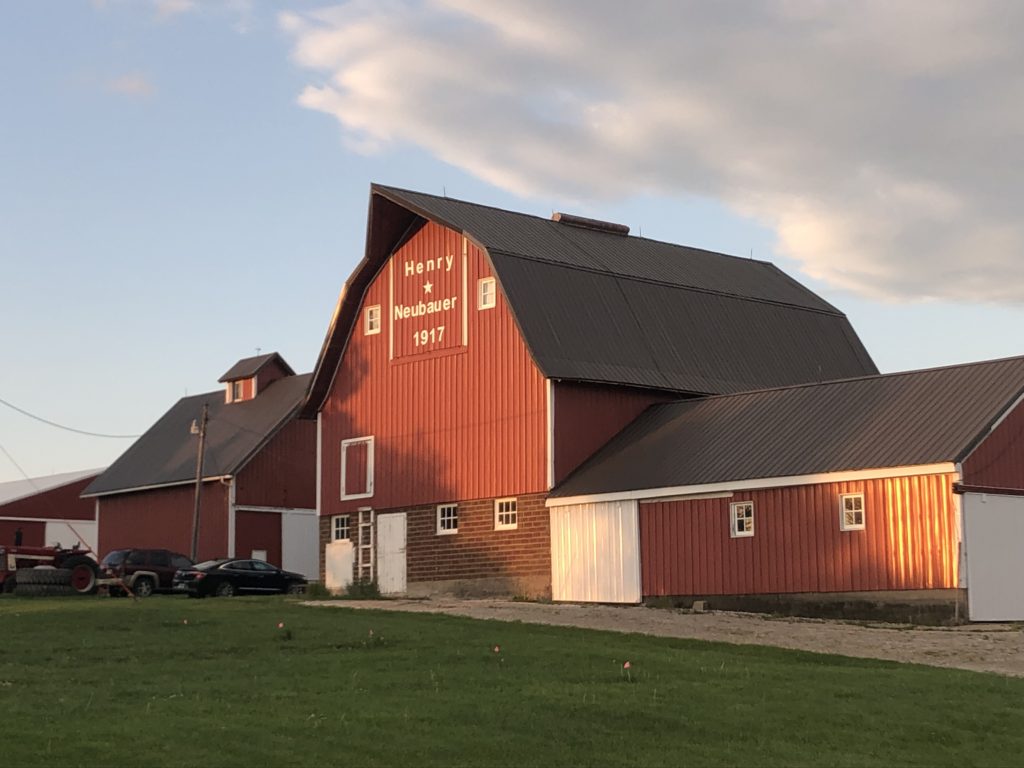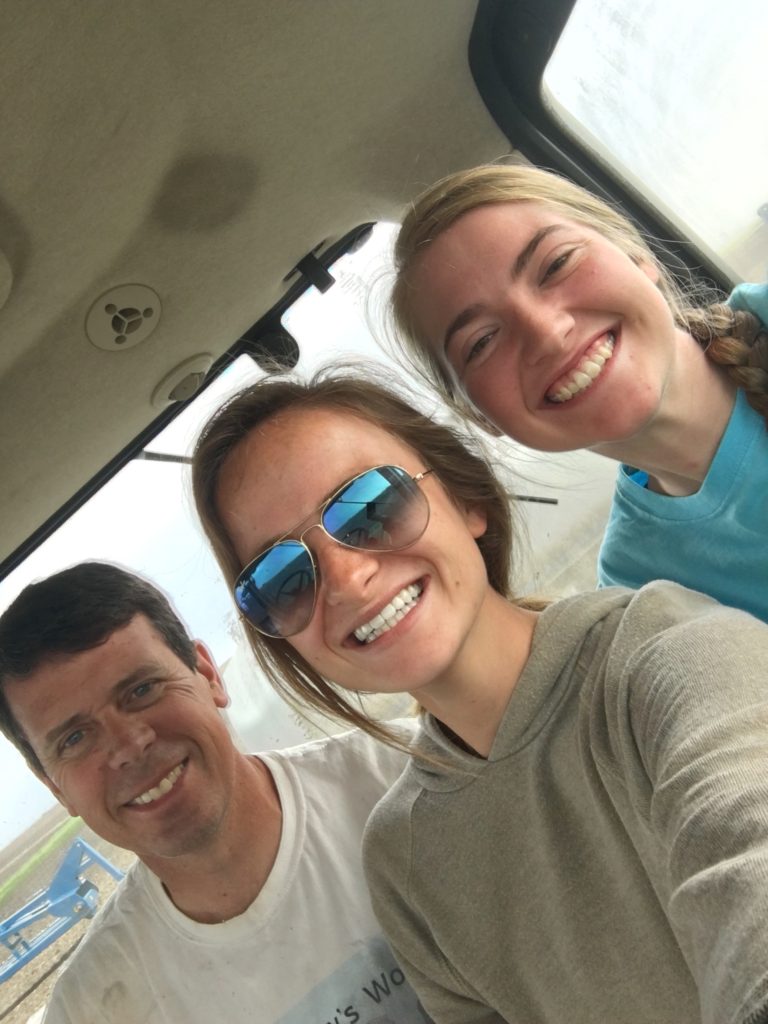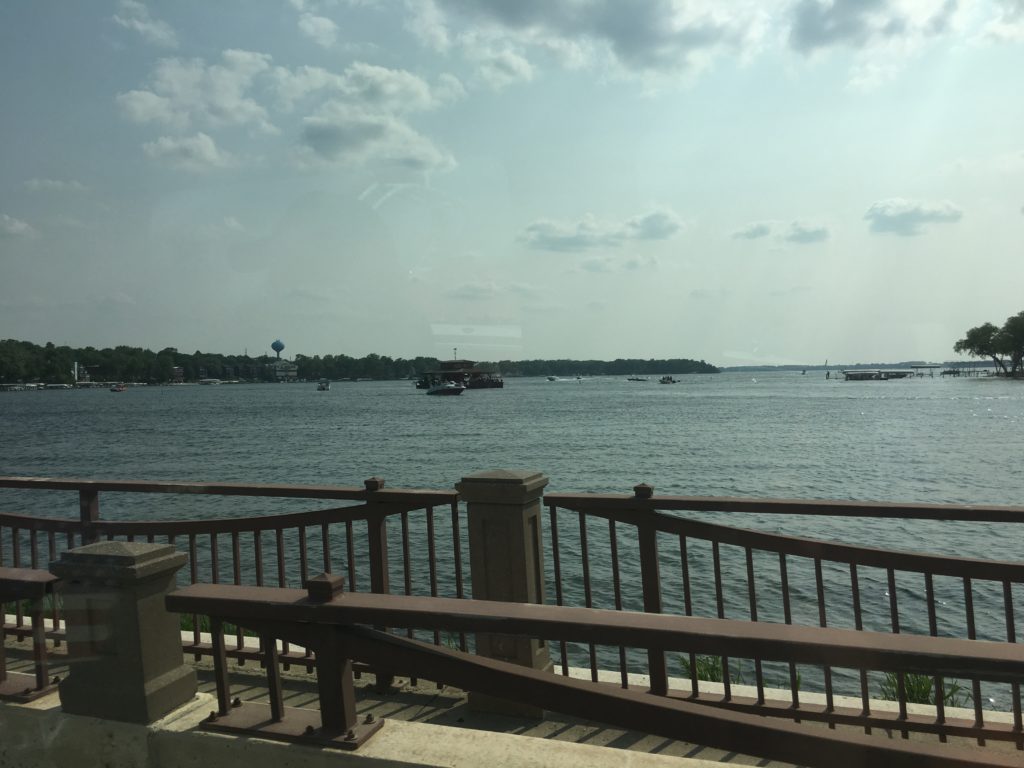Up until now our two perspectives of conventional agriculture versus sustainable agriculture could roughly be summed up as big v. small. The farms we visited in North-East Iowa associated with Organic Valley bucked this trend. There we toured various farms run by farmers part of the Organic Valley Co-op and they were very different from the organic farms we had previously experienced. Our hosts happened to be some of the kindest people. Their willingness to let complete strangers into their home and then to give us behind-the-scenes access to not only their farm but others is testament to their amazing generosity. They cultivated an engaging tour that led us throughout Northeast Iowa and Wisconsin. Organic Valley presented itself as a unique beast as it promoted family farms, and yet it was an organic and grass-fed juggernaut. The company is uniquely focused on the welfare and well being of its farmers. This focus on the farmers is sensible as the company is a marketing co-op where the farmers serve as the owners.
For thousands of years, humans have cultivated crops. Thought different parts of the world various seeds are used. Generally, these seeds were native to the area. As years went by and as humans began to migrate to different parts of the world, they brought seeds with them. in certain cases, these seeds have been passed down from generation to generation. The preservation of these unique seeds and the story surrounding them is what organizations like the Seed Savers Exchange has tasked itself with. While its main objective is to preserve seeds and their history, Seed Savers also has a catalog of roughly 21,000 seeds which people can order the seeds they desire. The unique part of this catalog lies in how the majority of the seeds listed in the catalog are provided by farmers and gardeners who simply want to make their seeds available to others. On our tour of the property, we helped weed the various seed plots, got an inside tour of the seed banks, got to walk the rows of the nascent orchard.
Unlike the majority of the cities of Iowa, the city of Storm Lake is its own diverse melting pot. Various Latino and Hmong communities thrive there as they work in the Tyson Meat Processing plants in the area. On Friday we got to hear the perspectives of two integral parts of the community. In the morning we met with Mark Prosser who is the Storm Lake Public Safety Director and the Chief of Police. With him, we sat down and opened a dialogue about how one goes about policing such a diverse community and what he does in terms of public outreach to change the negative views of the police. Surprisingly, he let us know that one of his lasting regrets as Chief of Police was his role in aiding an ICE raid on one to the meat plants in either the 90s. In his eyes, this shattered the relationship between the police and the immigrant community. Since then Chief Prosser has focused much of his efforts in community outreach and education with the desire to cultivate a better public image for the police force.
Prior to coming on the trip, we were required to read the book Storm Lake by Art Cullen. Storm Lake gave us a base understanding the importance of agriculture in Iowa and educated us about certain Iowa traditions. Along with Busch Light, farming is an integral part of Iowa which is why the Des Moines Waterworks lawsuit was such a big deal. Storm Lake details the case presented by the waterworks and then goes into how these small towns and drainage districts got the case thrown out. As students, we were surprised to hear from our professor that we would be meeting with Art Cullen, the Pulitzer Prize-winning author of Storm Lake. With Art, we covered a wide range of topics ranging from the contents of his books, the current political climate of Iowa and the economy. Water was still an important topic throughout our discourse but it took up less of our conversation than what I originally thought it would. After our meeting with Art, we had the honor of meeting with royalty. Mark Skopec, crowned the Queen of Water by one of her students who gave us a tour of the Lakeside Laboratory in Okoboji. There she demonstrated how to test the nitrate and phosphate levels in the water.
“Map of My Kingdom” is something anyone whose family has any sort of property can relate too. The looming question of who gets the farm in the play can be applied to things like the beach, lake, or mountain houses. A single child household does not necessarily have to consider about who gets what, but a family with two or more children does. Any additional child adds another layer of complexity to the situation.
This morning started with pigs and a phone call home. In the am, the group was split into three parts. Two people decided to sleep in, two others decided to go for a ride on a big green tractor and the four gentlemen had the wonderful opportunity to experience a hog operation first hand. The phone call mentioned above consisted of a certain someone (it could’ve been me, who knows) telling his mother that “ she’s pregnant”. Little did the poor mother know that her son meant the sow he artificially inseminated but why ruin the fun! She still loves me; I hope. After our fun on the Friest farm, we made our way to Iowa City where we met with Connie Mutel where we discussed the impact climate change had on the farms and how the current way of farming is not sustainable.
Originally, our final non-travel day was only supposed to consist of a morning meeting with Dr. Dave Cwiertny. But due to our 2:00 appointment yesterday being rescheduled today we had the honor of partaking in two activities. With both Drs, we continued our discussions about water quality, the effects of pollutants in the soil and waterways, and what could be done to circumvent or stymie the nutrient loss. In between these two meetings, we had the opportunity the walk around downtown Iowa city and visit the old haunts of our professor.



